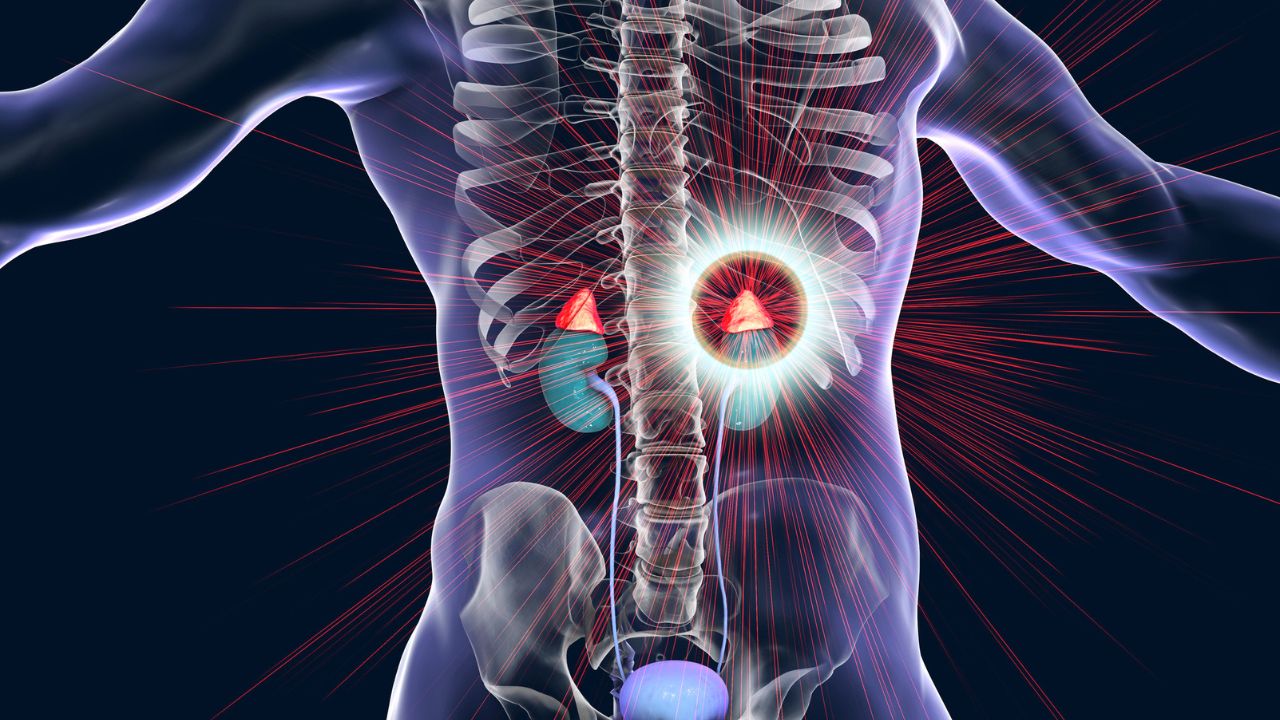 What is CAH?
What is CAH?
Congenital Adrenal Hyperplasia (CAH) is a group of genetic disorders affecting the adrenal glands, which are small glands located on top of each kidney. These glands produce vital hormones like cortisol, aldosterone, and androgens. In people with CAH, the adrenal glands do not produce these hormones correctly, leading to hormone imbalances that can impact various body functions.
Causes of CAH
CAH is caused by mutations in genes responsible for producing enzymes needed for adrenal hormone synthesis. The most common form of CAH results from a deficiency in the enzyme 21-hydroxylase.
This condition is inherited in an autosomal recessive pattern, meaning a child must receive a faulty gene from both parents to be affected. If both parents are carriers, there is a 25% chance their child will have CAH.
Symptoms of CAH
Symptoms can vary depending on the type and severity of CAH:
Classic CAH
- Ambiguous genitalia in females
- Dehydration and low blood pressure
- Low blood sugar (hypoglycemia)
- Vomiting and poor feeding in newborns
- Failure to thrive
Nonclassic CAH
- Early appearance of pubic hair
- Rapid growth in childhood but shorter final height
- Irregular menstrual periods in females
- Acne and excessive facial/body hair
- Fertility issues in both sexes
Diagnosing CAH
CAH is typically diagnosed through a combination of physical examination, hormone level tests, and genetic testing.
Newborn Screening
Most developed countries include CAH in newborn screening programs. A simple blood test within the first few days of life can detect elevated hormone levels associated with CAH.
Additional Tests
- Blood Tests: To measure levels of cortisol, aldosterone, and androgens
- ACTH Stimulation Test: Assesses adrenal gland response
- Genetic Testing: Identifies specific gene mutations
Treatment Options for CAH
The main goal of CAH treatment is to normalize hormone levels and prevent complications. Treatment is lifelong and must be tailored to each individual.
Hormone Replacement Therapy
Patients typically take medications to replace deficient hormones:
- Glucocorticoids (e.g., hydrocortisone): Replace cortisol
- Mineralocorticoids (e.g., fludrocortisone): Replace aldosterone
- Salt supplements: Especially important for infants with salt-wasting CAH
Monitoring and Adjustments
Regular follow-ups with an endocrinologist are crucial. Hormone levels must be monitored to adjust medication doses, especially during:
- Illness
- Surgery
- Growth spurts
- Pregnancy
Surgical Intervention
For females with ambiguous genitalia, reconstructive surgery may be considered, though this is a personal and often controversial decision involving ethical and medical discussions.
Living with CAH
Daily Management
- Consistent medication schedule
- Emergency hormone injection kits
- Medical alert identification
Psychological Support
Living with CAH, especially for children and teens, can be emotionally challenging. Counseling and support groups are recommended to help manage stress, identity concerns, and social interactions.
Fertility and Family Planning
While some people with CAH may experience fertility challenges, many can conceive with proper treatment and monitoring. Prenatal counseling is beneficial for couples where one or both partners are carriers.
Complications if Left Untreated
Without proper management, CAH can lead to:
- Adrenal crisis (life-threatening hormonal imbalance)
- Severe dehydration
- Infertility
- Stunted growth and development
- Psychological distress
CAH in Adults
Even into adulthood, CAH requires ongoing care. Adults must:
- Continue hormone therapy
- Monitor bone health and cardiovascular risk
- Address reproductive health
Research and Advances
Modern research continues to explore better treatment options, including:
- Gene therapy
- New medications with fewer side effects
- Personalized medicine based on genetic profiles
